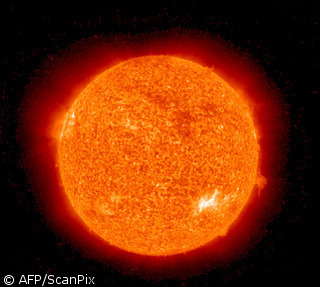Japanese scientists are working on a project to supply 13,000 TW of solar energy with the help of robots stationed on the moon to receiving stations on the Earth’s surface.
 Japanese scientists are working on a project to supply 13,000 TW of solar energy with the help of robots stationed on the moon to receiving stations on the Earth’s surface. The project involves transmitting solar energy to the earth’s surface using microwave or laser.
Japanese scientists are working on a project to supply 13,000 TW of solar energy with the help of robots stationed on the moon to receiving stations on the Earth’s surface. The project involves transmitting solar energy to the earth’s surface using microwave or laser.
The research division of a Japanese construction company, Shimizu, proposes to lay solar panels that would be of 6,800 miles in length along the moon's equator. The bay is estimated to stretch 248 miles in width. It will also install antennae that measures 12 miles in width for power transmission.
The company asserts that the project would lower inefficiency arising as a result of bad weather. The company also believes that the project will satisfy the energy requirements of the Earth. The project involves sending astronauts to the moon and leveling its crated surface with the assistance of robots. The company claims that it can make use of the moon’s soil to produce ceramics, oxygen, concrete, and water required for completing the project. The company also plans to construct a railway line to send materials required for the maintenance purposes.
Šaltinis:
azorobotics.com
Copying, publishing, announcing any information from the News.lt portal without written permission of News.lt editorial office is prohibited.